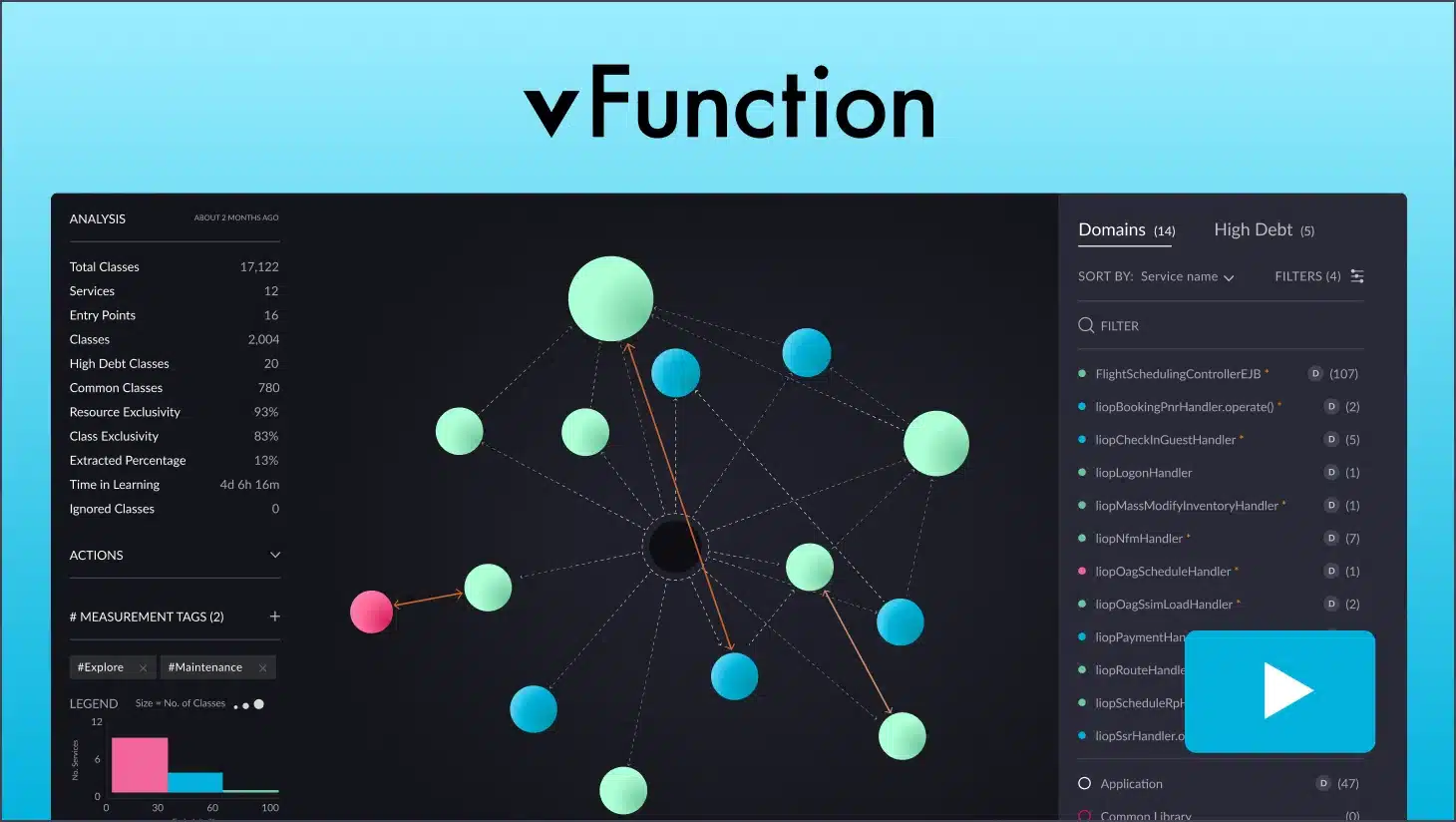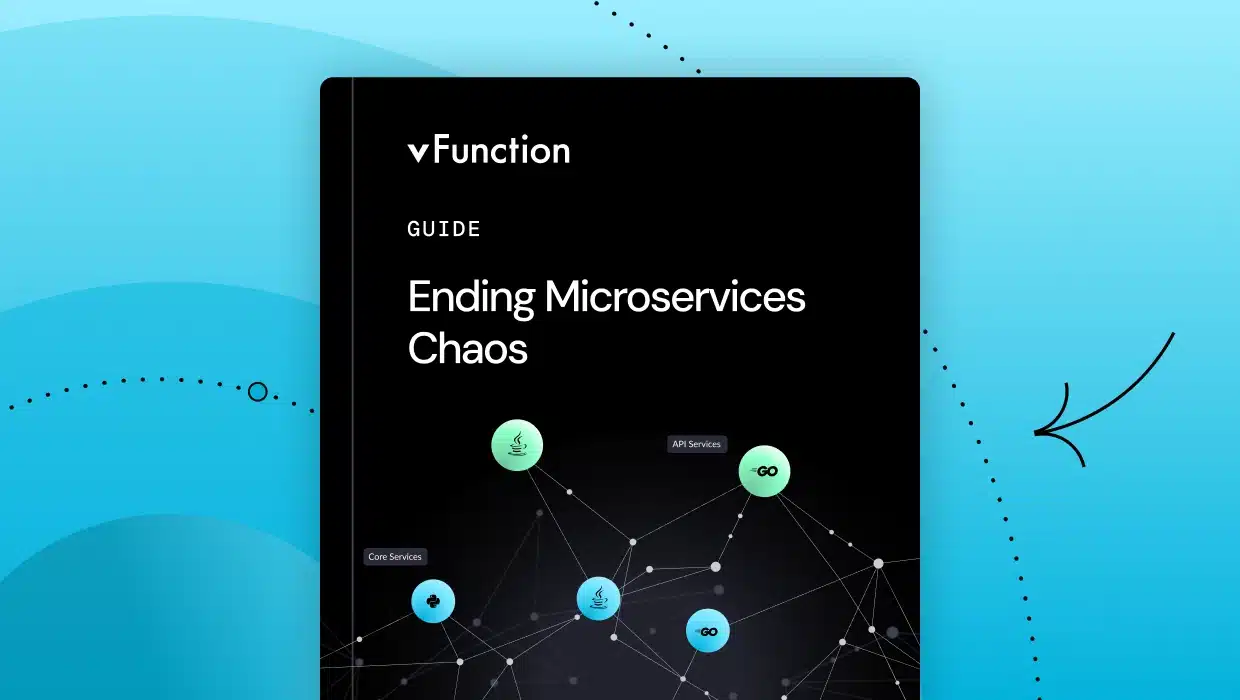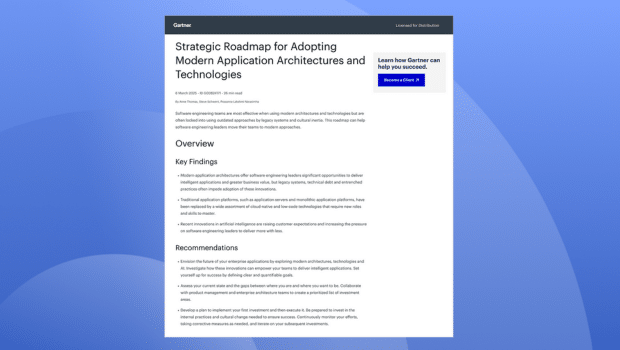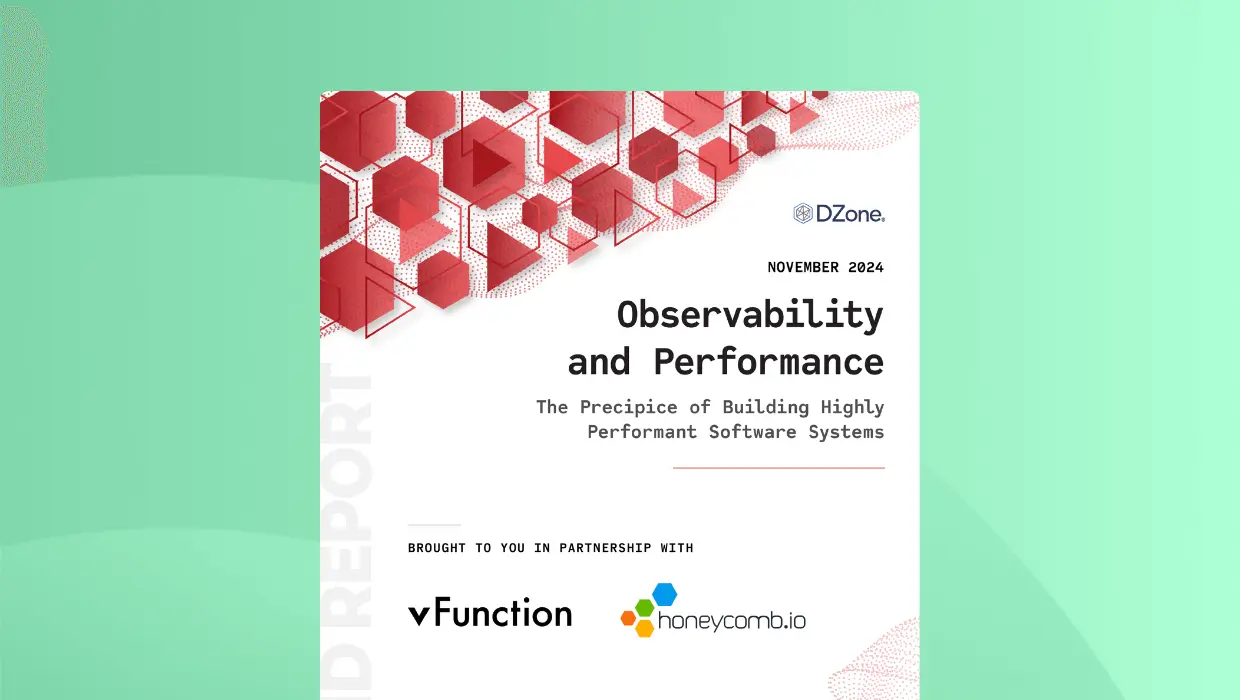Architectural modernization
Transform monoliths into cloud-native applications. Discover and visualize your architecture, identify domain boundaries, uncover and analyze dependencies and sources of technical debt, and extract microservices with vFunction’s automation tools.











